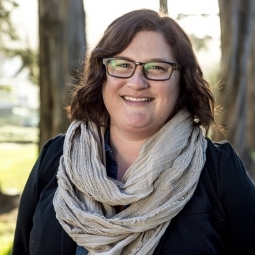A Dose of Nature for a Happier, Healthier Life
Publication Date
Story/Content
If you were to perform a simple online search using the key words "mental health benefits of nature" you would be met with over 62 million hits, many of them news articles touting the endless benefits that green space has on our mental wellbeing. Additionally you can now find an abundance of resources from around the world focused on improving the mental health of of youth, refugees, veterans, and urbanites.
Mental wellbeing is quickly becoming a major public health issue. In 2011 the U.S. Centers for Disease Control and Prevention (CDC) reported that the use of antidepressants in the United States had increased nearly 400% in the last two decades alone. As the world becomes a more urbanized and complex place, we have to start asking ourselves just how important our green spaces are to us.
Just last week The Guardian published an article titled "Why green is good for you" and pointed to a study that tracked the mental health of a 1,000 people - half had moved to an area with higher rates of green space and half who moved to an area with less green space. As predicted the group who moved to an area with more abundant green spaces had an immediate improvement in their mental health. The most striking outcome was the improvement in mental health that was still present three years later.
It's been ten years since the term "nature deficit disorder" has entered our vocabulary. From forest bathing in Japan, to refugee walking programs in Australia, to the rise of park prescription programs throughout the United States, it's clear that we're making strides to improve the health and wellbeing of our population.
You don't need to plan your retirement to a cabin in the woods just yet to reap the mental benefits of nature. Taking the path that winds through the park on your way to school, ditching your couch for the shade of a tree to read the newspaper, or playing on the local playground with your kids are all good ways to become happier, and thus feel better. It doesn't take a lot but it does take a little.


